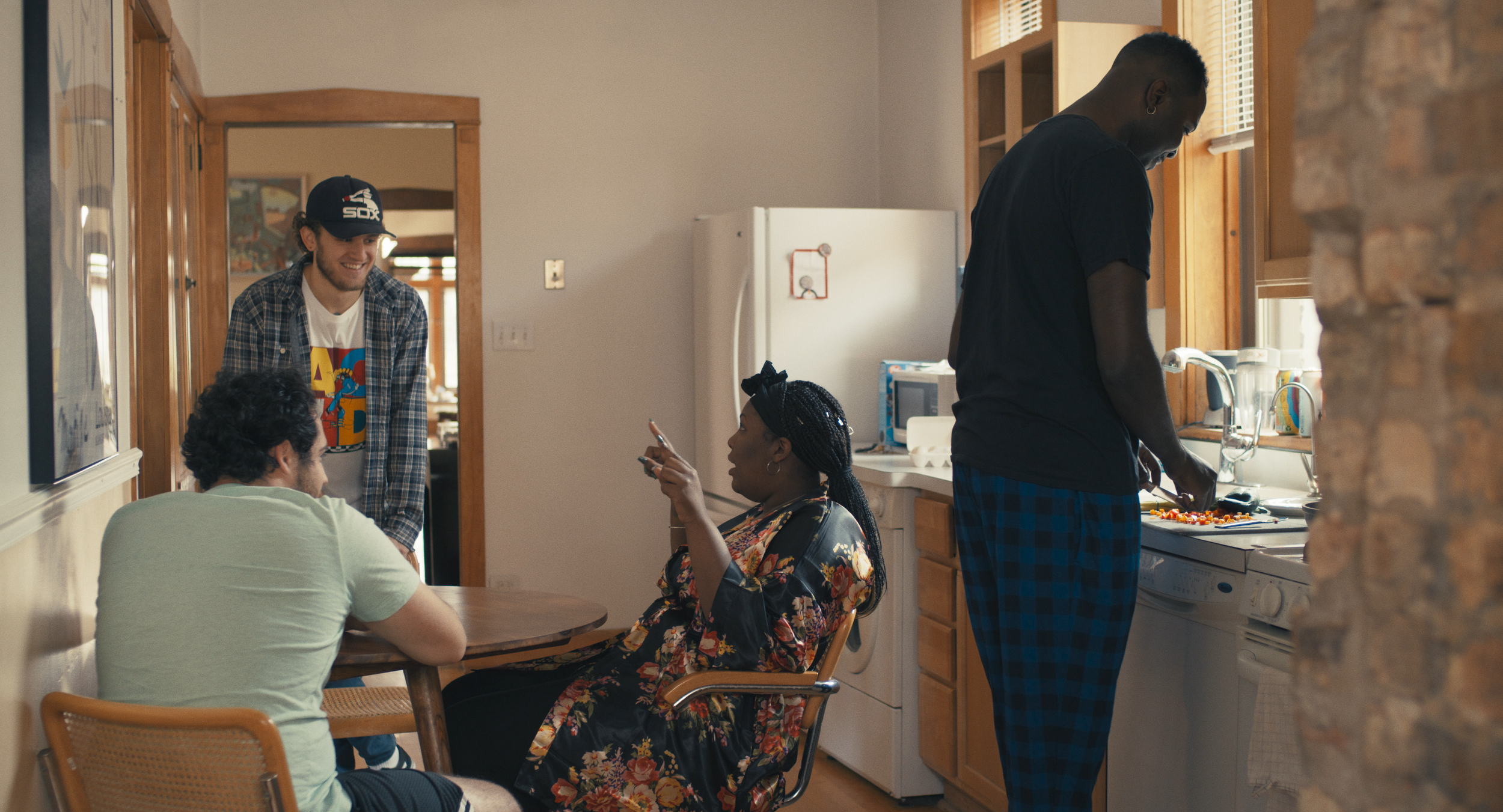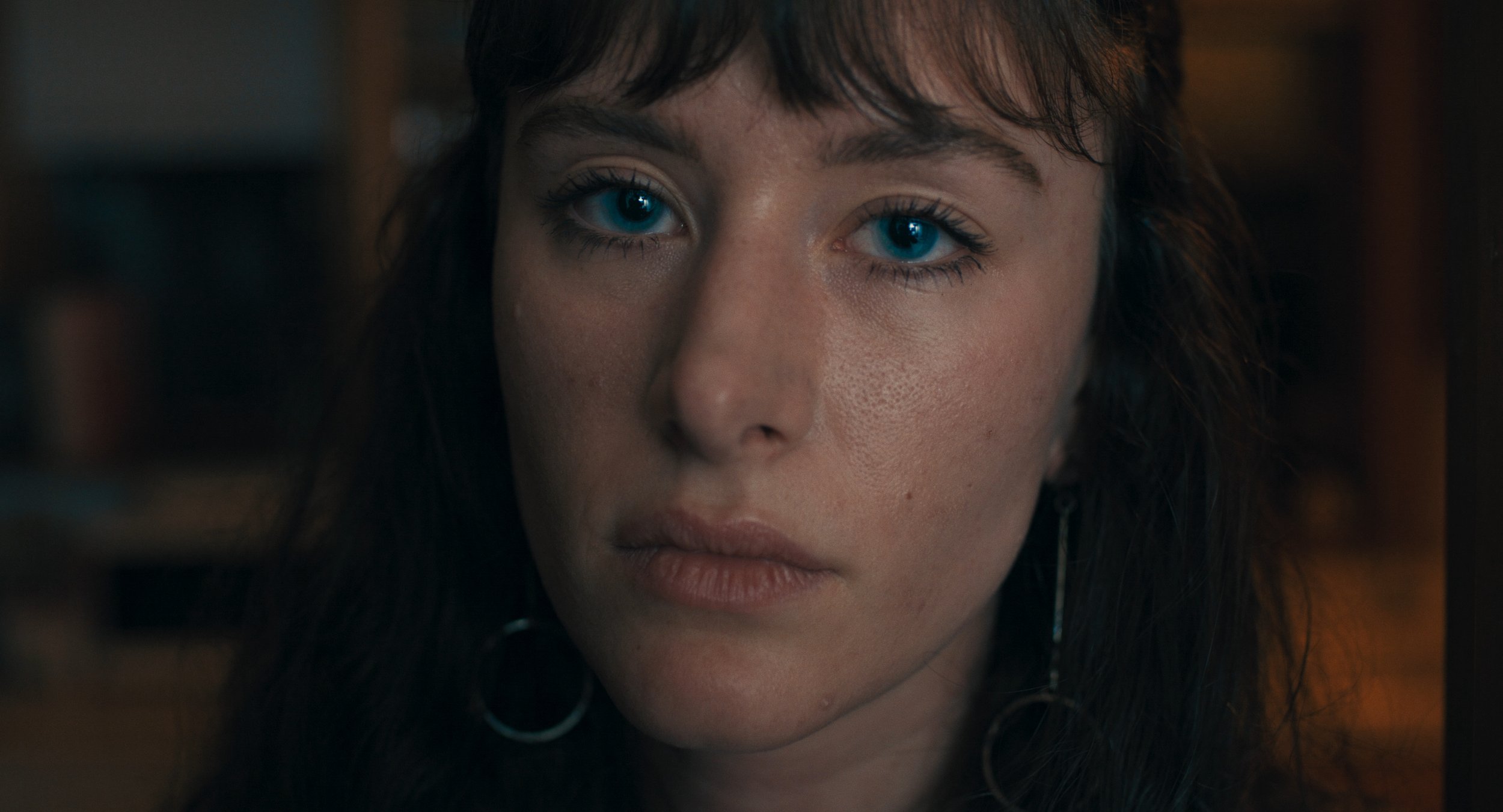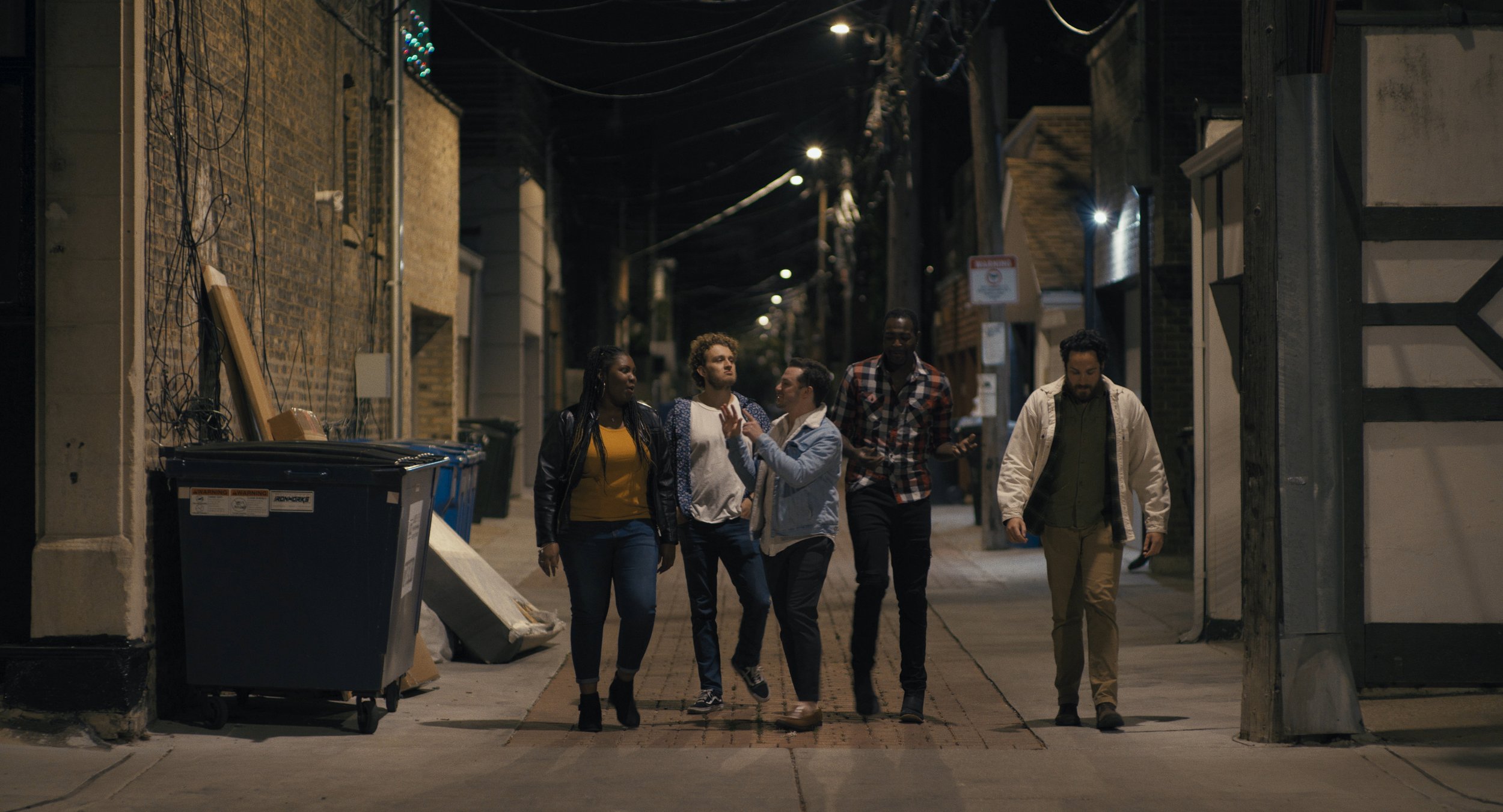MOVIE REVIEW: Saturday Night Inside Out
SATURDAY NIGHT INSIDE OUT– 3 STARS
Saturday Night Inside Out follows a 26-year-old Chicagoan as he navigates an emotionally arduous 24-hour span that may or may not become a turning point for the next five or ten years of his life. Step back from that one-sentence summary and ask yourself what kind of events, especially for an individual at that age, could possibly construct a defining moment on that level. If you’re thinking about friends, family, career and a love life, you would be right because all four of those–and then some– come into play in Saturday Night Inside Out.
The promotional description of Saturday Night Inside Out posits a “quarter-life crisis” for its main protagonist Floyd, played by green actor Luke Paspalas. People younger than 26 will ask if that is even a thing. Everyone else older than 26 will rub their brow and shake the questioning youth by the shoulders to assure them the quarter-life crisis is real. Chances are they had one even if it’s not as existentially severe as the classic mid-life crisis happening around 40.
LESSON #1: THERE IS SUCH A THING AS A “QUARTER-LIFE CRISIS– Think about the sweet spot age of 24 to 28. Post-undergrad careers are past their starting point and likely on a solid track. The mid-to-late twenties is the typical age range for the life-changing marriage and parenthood steps for you and your social circle. All of these pivot points create a transition from the independent frivolity of young adulthood to the stable security of mature adulthood. If any of those elements are undefined, unsettled, or downright broken, the crisis grief sets in.
Floyd is feeling that kind of dread in Saturday Night Inside Out, and it peaks with this observed day. His parents have informed him and his sister that they are selling his childhood home and relocating farther away from the city. A few of Floyd’s mainstay single friends are starting to drop like flies to cohabitation and marital engagements. The weed-infused and alcohol-soaked parties he loves are fewer and far between.
Moreover, Floyd’s writing career has stalled and his relationship prospects are empty. The shared FOMO of making sure not to miss youth before memory washes it away has morphed into everyone asking, lecturing, nudging, and nagging Floyd why he doesn’t have his life together and what lies in his future. The frazzled uncertainty of his answers pings Lesson #1.
LESSON #2: THERE’S ALWAYS A GIRL– How did Floyd get here? Where did progress stall for him? Well, there’s always a girl. A few months back, he and the love-of-his-life Nora (Alexandra Miller, in her first feature) split. That gut-punch and ensuing tailspin has sapped his creativity and spirit. In his private moments, memories of Nora– collected and presented in lovely musically-backed flashbacks– fill his thoughts. She’s the “woulda-coulda-shoulda” and wears the invisible “One That Got Away” crown.
Like good friends and family should, the aforementioned asking, lecturing, nudging, and nagging is all an effort to get Floyd back out there socially, re-inspired to write, and pursue a better career. Saturday Night Inside Out feels like the adage of good friends try to talk you off the ledge, while better friends join you there. His mainstay wingman Robbie (Zach Bradley of Sex Ed and Ashbury Park) has a bead on an epic party in the works, but not before being summoned by his parents for their deflating news. Prospects perk up at a local record store when he meets the fetching Joanna (Sophie Morrison), who happens to be heading to the same party. They hit it off and his friends notice the sparks.
LESSON #3: SECOND CHANCES IN THEIR MANY SHAPES AND FORMS– The most optimistic part of a quarter-life crisis is the amount of life still ahead of those maturing adults. Being under-30, they have time for second, third, and even fourth chances at life and love before anyone becomes an old spinster or loner loser. Naturally, the dramatic and semi-invincible feelings of this Millennial age cloud any patient outlook with rushed urgency. The rub is all of those extra available chances can multiply the failures just as easily as they can create successes. This single day grants Floyd big opportunities for both results.
Written and directed by Chicagoan and feature first-timer Connor McBride, Saturday Night Inside Out leans on attitude more than hijinks. This isn’t a raucous one-wild-night movie with waves of happenstance pushing the action. The city of Chicago– sprawled out in all its locally indigenous glory and shot beautifully by director of photography and short film specialist Henrikas Genutis– is not a pure party arena, but a stomping grounds of reality and shared plights. The catchy music in Saturday Night Inside Out, featuring an electronically airy score by the band Glass Valley and wide track list of rising talents, pushes an introspective mood over an adventurous one.
Albeit, before it all coalesces with a mini-epiphany in the third act, about half of Saturday Night Inside Out is a simplistic quest towards the next drink or next joint. It’s living fairly in its moment and saving itself for the end. Yet, a movie like this could have used one more gear of energy akin to something like Swingers to raise the rooting interest and measurable excitement level for what the viewer feels could be coming.
Be that as it may, the calmer artistic tones match the storytelling from McBride. Instead of flippant “whatever” ambivalence typically assigned to Millennial movie characters, the self-reflection level is tremendously and appreciably high in the film. Rookie actor Zach Papalas is never downright mopey and conveys a charming balance of resiliency for Floyd. Thanks to his repaired gumption and the welcoming urban setting of surrounding people and places, the springboard of Floyd finally following the advice to go after what he loves feels organically built and earned. That’s a win over crafting a “you wouldn’t believe what happened last night, dude” story.
LOGO DESIGNED BY MEENTS ILLUSTRATED (#1146)








